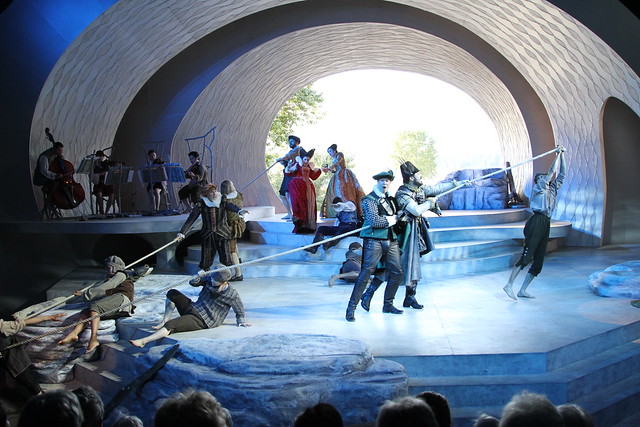
April 23rd is the 400th anniversary of Shakespeare’s death. Few of us would dispute that he was a great playwright, few except perhaps Grade 8 students all over the world being forced to study symbolism in Macbeth or how to write iambic pentameter.
But why is it Shakespeare we still celebrate? Why him and not any number of other playwrights? There are plenty of good ones, old and new. Marlowe. Miller. Mamet. Chekov. I’m sure there are others you would have chosen. But Shakespeare they are not. If proof were needed, none of them are also known as The Bard. Not ‘A Bard’. Not even just ‘Bard’ (like Facebook). But, The Bard. That’s like being called The Actor. The Musician. Or The Diplomat. Unfortunately, however hard I may try, I can’t see anyone referring to me in 400 years’ time as ‘The Diplomat’.
For me the reason we remember him lies in what we can still learn from his work, and this is borne not only from its quality but also its breadth and scope. It’s all well and good to have written one riveting play or a couple of poignant sonnets. I’m not saying that’s easy, but many other great writers have done it. What is also remarkable is how prolific he was – 38 plays, 154 sonnets, and other works. Given that he died when he was probably about 52 years old, this is even more remarkable.
And this brilliant and prolific creativity enabled him to bring to life a breadth and diversity of human wisdom and emotion which cannot be found in equal measure elsewhere. Performances of his plays are as ubiquitous as his work was broad. If you’re in Vancouver there’s Bard on the Beach, the Globe in London, or one my favourites highlighted in the film Muse of Fire (worth a watch) –a small theatre off a highway in the US. Yet wherever we watch, we come away with lesson after lesson that we can bring to our daily lives.
- There’s self-knowledge: “This above all: to thine own self be true, and it must follow, as the night the day, thou canst not then be false to any man.” Hamlet
- There’s love: “Don’t waste your love on somebody, who doesn’t value it.” Romeo & Juliet
- There’s humanity: “I am a Jew. Hath not a Jew eyes? Hath not a Jew hands, organs, dimensions, senses, affections, passions; fed with the same food, hurt with the same weapons, subject to the same diseases, heal’d by the same means, warm’d and cool’d by the same winter and summer, as a Christian is?” Merchant of Venice
- There’s fate: “As flies to wanton boys are we to the Gods, they kill us for their sport.” King Lear
- There’s financial prudence: “Neither a borrower nor a lender be.” Hamlet
- And of course there’s the handy put down, which I wish I could remember when I needed it: “I see he’s not in your good books, said the messenger. No, and if he were I would burn my library.” Much Ado About Nothing
But as if all this quality and breadth and insight weren’t enough, what ties all this together is that Shakespeare reminds us, with each play, of our common humanity; that all of us wrestle with the same thoughts and feelings as each other. Whether we are a merchant of Baghdad or Venice; a gentleman of London or Verona; we all know the challenges of love, jealousy, anger, sadness, ambition, resentment, vanity. We are all frail yet strong, selfish yet generous, fearful yet brave. We were these things 400 years ago. We are all of these things today. And we will be all these things in 400 years’ time. Which is why my great great great… etc grandchildren, will probably still be celebrating him then.
